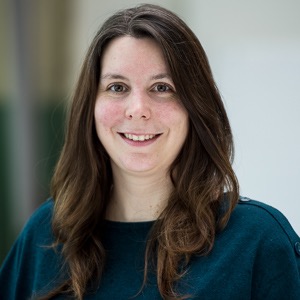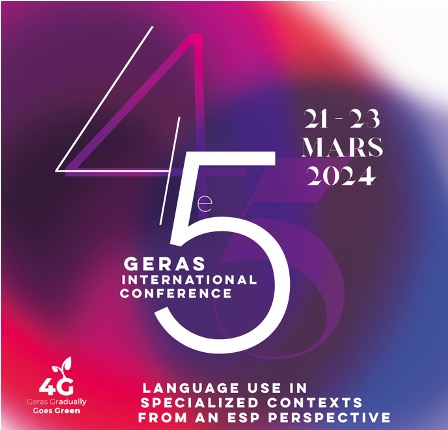Key note speakers
Alice Delorme Benites

Alice Delorme Benites is a professor of human-computer communication and, with Chantal Wright, co-directs the IUED Institute for Translation and Interpreting at Zurich University of Applied Sciences (ZHAW), Switzerland. Her research focuses on the uses of machine translation and automatic text generation by the general public. She has led a number of projects looking at the role of machine translation tools in academic writing, language learning in universities and crisis communication for displaced populations.
Steven Breunig

Steven Breunig is Associate Professor of English and Communication at the University of Southern Denmark (SDU). His PhD is in cognitive linguistics, yet interests have expanded to areas such as ESP, the development of shared languages, intercultural communication, strategic writing, organizational communication and culture, as well as the use of digital and arts-based methods. Steven is active in a Danish nation-wide partnership for the development of digital methods and competencies (https://digitalcurriculum.au.dk/). At SDU, he is associated with two research groups: the Center for Organizational Practice, Communication and Technology and the Center for Culture and Technology.
Special guest
Teun A. van Dijk

Teun A. van Dijk is honorary professor of Pompeu Fabra University, and Founding Director of the Centre of Discourse Studies, Barcelona. After his earlier research on literary theory, text grammar, discourse pragmatics and the psychology of text processing, since the 1980s his work is on various topics of critical discourse studies. His last books are Discourse and Power (2008), Discourse and Context (2008), Discourse and Knowledge (2014) and Social Movement Discourse (2024). He is founding Editor of Discourse & Society, Discourse Studies and Discourse & Communication. He has lectored in many countries, especially in Latin America, where he also received three honorary doctorates.
Key notes
Alice Delorme Benites: English and French in specialized contexts: is AI forcing us to rethink our skills?
Recent developments in automatic language processing (ALP) and the mass popularisation of machine translation tools (DeepL, Google Translate) are calling into question the aim and approach of teaching specialist English, as well as the status of French in international specialist communication. This challenge will be accelerated by the arrival of generative AI (ChatGPT) in autumn 2022. While the teaching of specialized languages shares many of the same issues as language teaching in general, certain aspects remain specific to it: since the use of English and French in specialized professional environments is marked by terminological constraints linked to the field of specialisation or the company's identity, we need to ask ourselves to what extent the arrival of tools that are certainly powerful but generalist, such as ChatGPT or DeepL, will change the situation.
This raises two questions. Firstly, what practices in the workplace emerge from the free availability of powerful tools such as ChatGPT or DeepL? What expectations do employers have of the language skills - and more specifically the level of French and English - of their staff?
Next, we need to translate the changes observed in professional contexts into didactic questions: have the objectives of teaching a specialist language changed in the face of AI? Has the skills profile of teachers changed as a result? I will approach these questions from the angle of the notion of interactional expertise (Collins & Evans 2002).
For specialist language teachers, it is a question not only of knowing the potential of these new technologies for their own teaching practice, but also of participating actively in the discourse they generate. For people who use specialist English and French in their professional environment, it is now a question not only of knowing how to use these tools in the best possible way, but also of choosing them (or even buying them) and integrating them into their communicative processes in an informed and reasoned way. Interactional expertise is articulated here on different levels, the contours of which I will outline in this presentation.
Steven Breunig:
Sounding professional: A case study of voice artists in Hollywood with an ESP perspective.
ESP is a well-established field of research and teaching within applied linguistics characterized by much diversity. In my talk, by recognizing the human capacity to volitionally modulate voice in response to specific social contexts (Pisanski et al. 2016), I aim to examine how the use of voice is constitutive of language use and the construction of context.
Airline pilots, for example, need to be proficient and fluent in the genre and register of Airline English to communicate with each other and traffic controllers. Yet if pilots speak with a low, deep, and slow voice without much inflection, they may not sound trustworthy by invoking fear, especially for passengers. Thus, voice, along with the verbal patterns that create spoken discourse, contributes to a particular practice, while also helping listeners create speaker identity. To explore the use of voice, I focus on a group of practitioners who thoroughly “work” with language, namely, voice artists.
First, I review aspects of vocal communication (Gobl and Chasaide 2003, Kjeldgaard-Christiansen and Hejná 2023, Podesva and Callier 2015) to examine the vocal variation of speech production used by voice artists to move the thoughts and feelings of listeners. Then a case study is provided, which includes: 1) an analysis of voice artistry across different genres, for example, film trailers, computer animation games and American Superbowl announcements to see how voice work shapes meaning and 2) an analysis of an interview with a voice artist working in Hollywood, with a focus on the development of a professional user of voice, including the preparations made when given a script to convey different meanings and emotions, depending on the ambiance of the context to be constructed.
Finally, a critical reflection is provided from an ESP perspective. My presentation, by attending to spoken discourse, using new technologies as a source of data and an occupation typically not in focus (Belcher 2006), will hopefully help language learners “find their voice”.
Belcher, Diane D. 2006. English for specific purposes: Teaching to perceived needs and imagined futures in worlds of work, study and everyday life. TESOL Quarterly. Vol. 40. No. 1. 133-156.
Gobl, C., and A. Ní Chasaide. 2003. The role of voice quality in communicating emotion, mood and attitude. Speech Communication. 40: 189-212.
Kjeldgaard-Christiansen, Jens and Mísa Hejná. 2023. The voices of game worlds: A sociolinguistic analysis of Disco Elysium. Games and Culture. Vol. 18(5). 578-597.
Pisanski, Katarzyna and Valentia Cartei, Carolyn McGettigan, Jordan Raine, David Reby. 2016. Voice modulation: A window into the origins of human vocal control? Trends in Cognitive Sciences. Vol. 20. Is. 4. 304-318.
Podesva, R. J., and P. Callier. 2015. Voice quality and identity. Annual Review of Applied Linguistics. 35: 173-194.
Teun A. van Dijk:
Discourse, Knowledge and Context
The study of discourse in general, and of professional discourse, in particular, has extenesivly paid attention to the structures of discourse, as studied in phonology, syntax, local and global semantics, narrative and argumentative structures and multimodal structures. e.g., combined in the analysis of various genres of text or talk. Current research, under the influence of psychology or not, also focuses on the role of knowledge to understand the many structures and strategies studied in epistemic discourse analysis. Similarly, although context has played a prominent role in sociolinguistics and pragmatics, for instance in the study of indexicality, context analysis and the role of context models account for a more explicit focus on the ways discourse structures, also of professional discourse, are adapted to the communicative context and thus defines their appropriateness. Examples of professional discourse will be used to show the analytical relevance of these theoretical notions.





